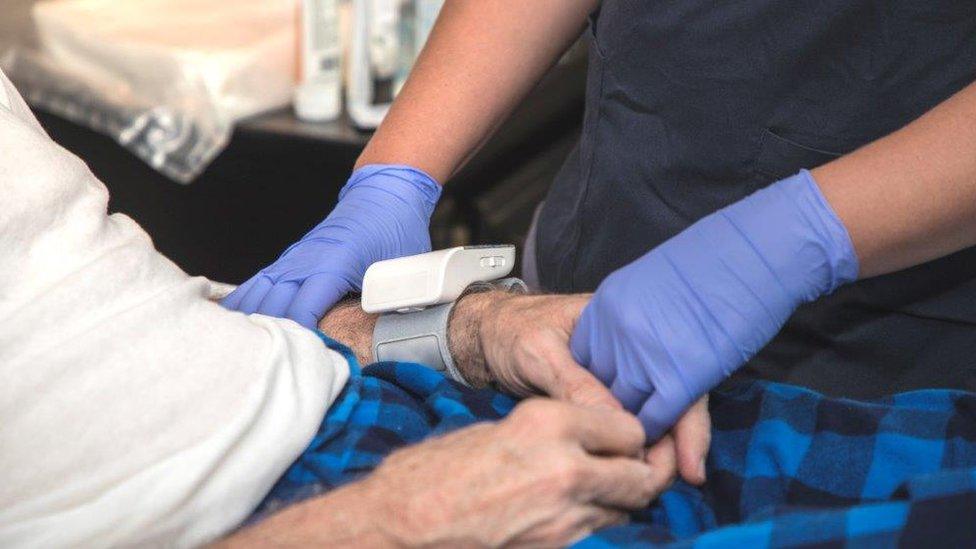Alfie Evans: Is 'guerrilla warfare' a sign of things to come?
- Published
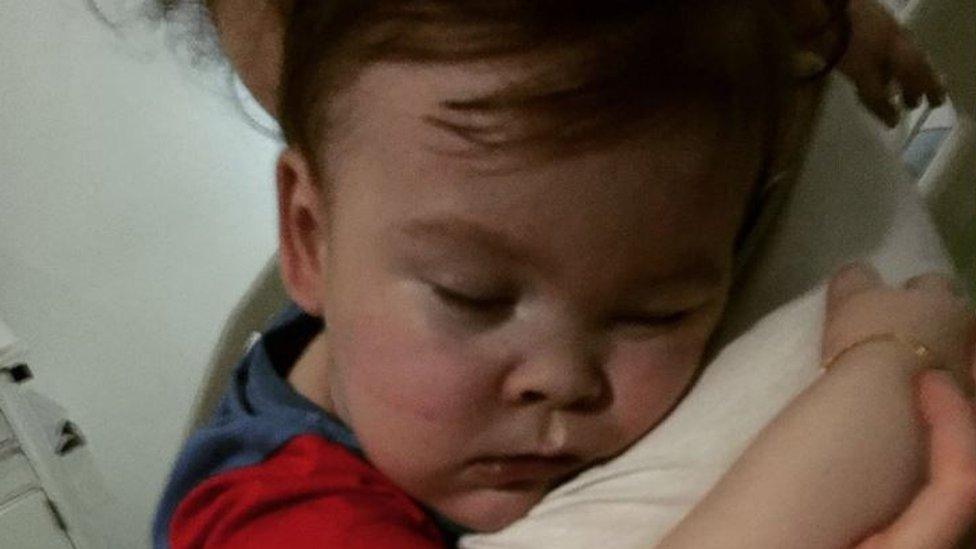
Alfie Evans died on Saturday after being taken off life support last Monday
The similarities between the Charlie Gard and Alfie Evans cases are uncanny.
Alfie, who had a degenerative brain condition, died on Saturday aged 23 months. It came less than a year after Charlie, who had a rare genetic condition, passed away at 11 months of age.
In both disputes the parents of a seriously-ill child and the doctors treating him at world-renowned hospitals disagreed about whether life support should be removed.
Both ended in the courts. And both ended in defeat for the parents, prompting an outpouring of anger against the hospitals and staff looking after the children.
It begs the question of whether this is a sign of things to come.
While these cases have dominated the headlines, decisions to withdraw life-sustaining treatment and instead to focus on providing end-of-life care are taken every day in hospitals up and down the land in cases involving patients of all ages.
The vast majority are resolved amicably between families and doctors - or at the very least do not require court intervention. But of course those involving children are the most distressing on both sides.
What the law says
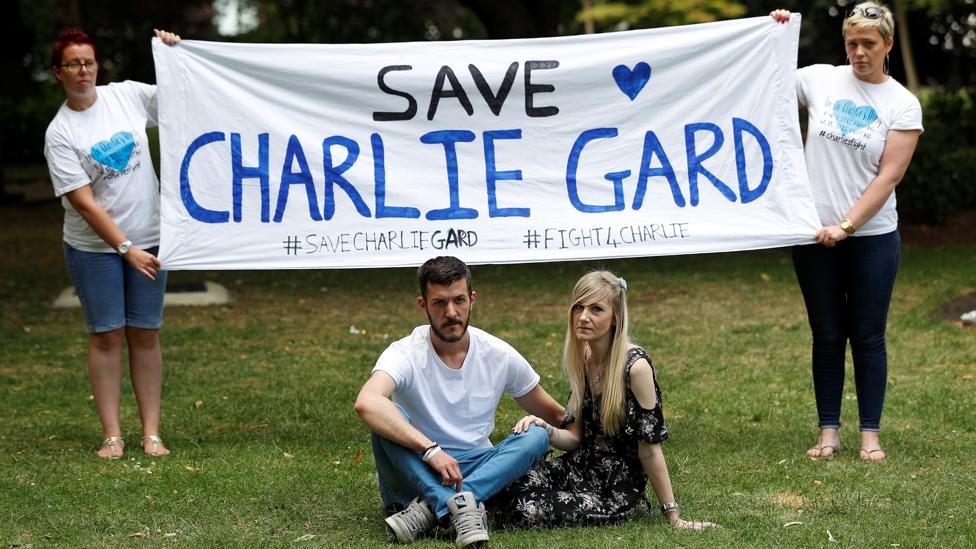
Charlie Gard's parents, Connie Yates and Chris Gard, during their fight against Great Ormond Street last year
These are not the first cases that have gone to the courts. Dr Laura Davidson, a respected mental capacity barrister, says she has been involved in many cases and believes the UK has one of the most "developed" systems in the world for dealing with such disputes.
She says the merits of each side are considered in depth and tested by cross-examination, leaving the court as the final arbiter taking into account the medical, psychological and social evidence - which includes the views of families.
While some have argued parents should be allowed to make decisions about their children, the law does not see it like that.
The 1989 Children's Act, which was introduced following a child abuse scandal in Cleveland, makes it clear that where a child is at risk of harm the state can and should intervene.
Subsequent legislation has followed and a framework has been created whereby the state has been emboldened to challenge the view of parents where they believe children's best interests are not being served.
Tactics smacked of 'guerrilla warfare'
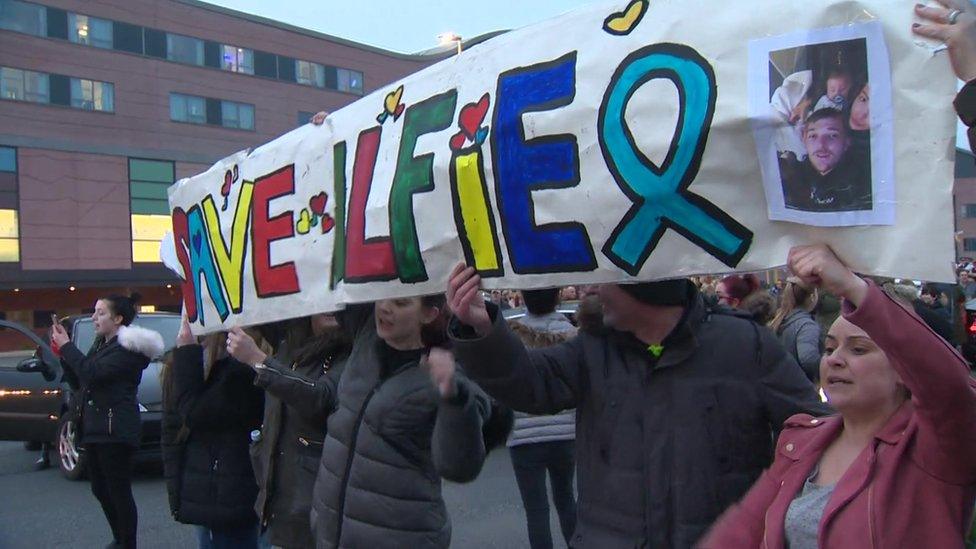
Protesters outside Alder Hey Children's Hospital
What perhaps marks these two cases out is the attention they were given and the way supporters mobilised themselves to put pressure on the NHS.
Medical ethicist Dr Daniel Sokol says the approach taken in recent weeks smacks of "guerrilla warfare" where threats, insults, intimidation and distortion of facts were used to put "unbearable pressure" on the health service.
In both cases parents and their supporters were able to use social media to make their points.
And when faced with emotional pleas from parents - at one point Alfie Evans' father said he was effectively a prisoner at Alder Hey - it is almost impossible for the NHS to provide the counter argument, while ensuring it maintains patient confidentiality, remains respectful to families and protects its staff.
It creates an environment where the NHS can be painted as uncaring and the weight of expert opinion can be ignored by the public. The fear, some say, is that this could now become the norm.
- Published28 April 2018

- Published8 February 2018
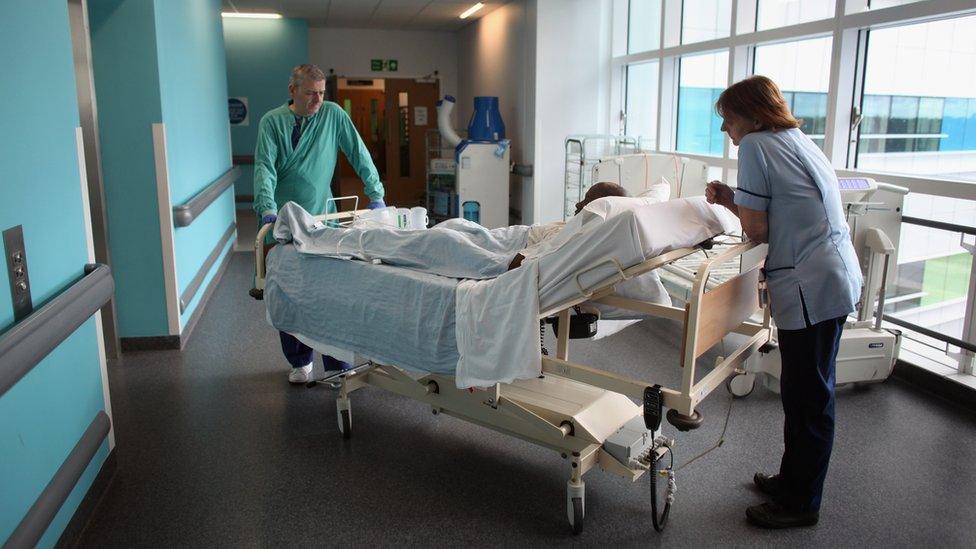
- Published7 February 2018
